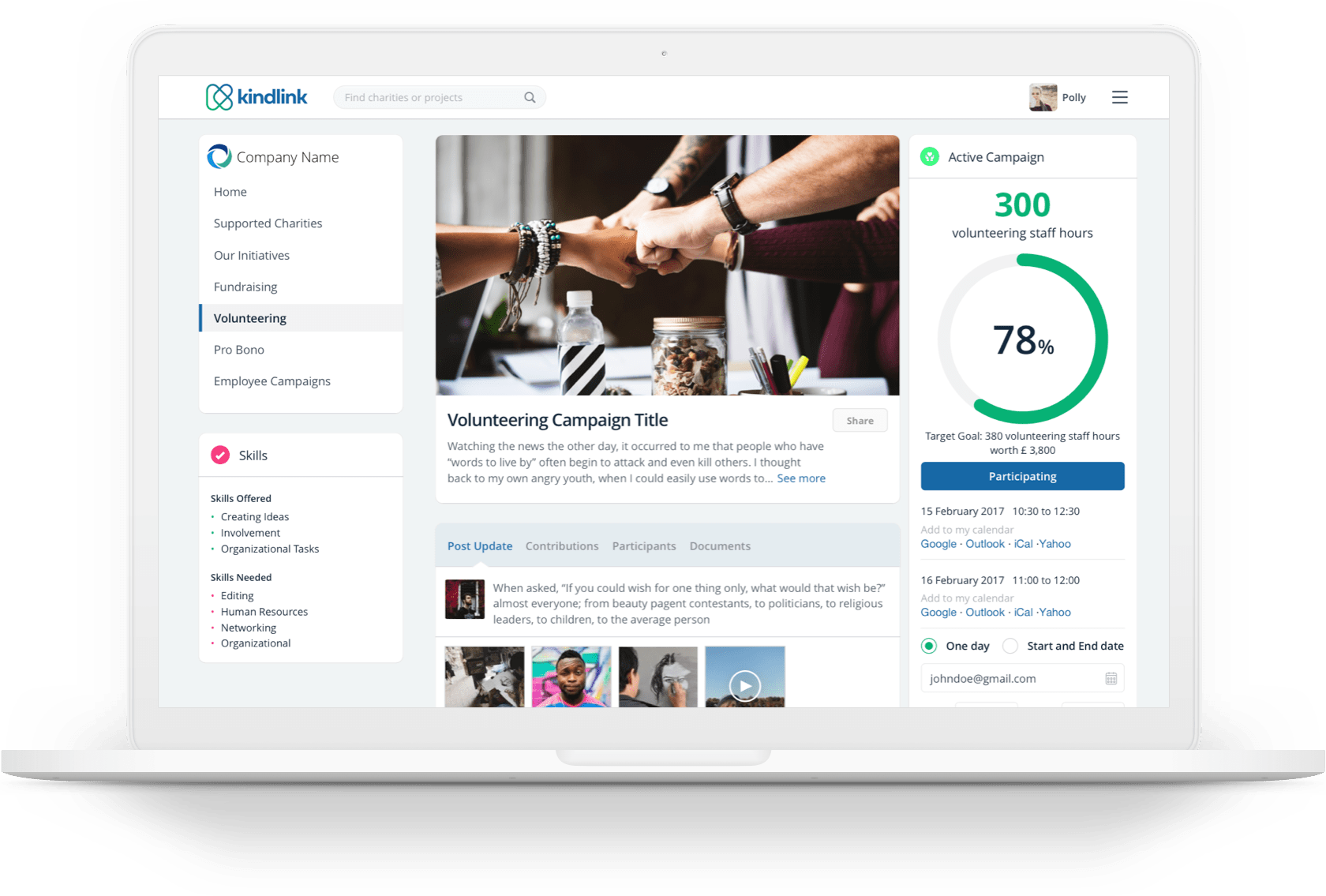
Business leaders in all sectors are making environmental, social, and corporate governance (ESG) issues a priority, even more for institutional investors, who are divesting funds from companies that don't live up to their standards. And consumers are more sensitive than ever to sustainability-related issues.
An ESG strategy is an investment, but it doesn't have to be an expense. In fact, it can lead to great improvements in your internal team performance, as well as your sales numbers. In this blog, we'll go over both aspects in detail.
Impact on team performance
DEI and community volunteering initiatives can do great things for your team by helping bring people together. That's just one way in which a far-reaching, well-communicated ESG strategy can improve team performance—let’s explore a few more.
Aligning with company values
An ESG strategy can have a positive impact on your existing team's performance by more closely aligning them with company values.
It can also help you bring in more highly motivated candidates for whom those values resonate.
Whether it's their human rights stance or governance policies, companies that implement ESG policies have to define clear values, stick to them, and measure their own performance against those values.
This can help in the hiring process. Instead of hiring for a vague idea of "culture fit", you now have concrete values against which you can measure potential hires.
Once they're in the company, you can give them room to pursue those values in voluntary initiatives and pro-bono worm. Self-serve employee lead platforms helps employees manage their time effectively and carve out time for volunteering and mentorship alongside regular business activities without additional administrative burden. And collecting that data helps you report on the resources you're putting towards these values.

Cultivating a clear sense of purpose
By cultivating a clear sense of purpose in your team's everyday work, ESG can improve performance across the company.
With good communication and the right KPIs, you can tie employees' everyday tasks into larger goals, from supporting local community projects to donating a cut of profits to carbon capture efforts. This can lead to higher employee engagement and morale, which in turn brings about lower staff turnover.
Your ESG strategy should include every part of the company.
-
IT staff should feel energised by climate initiatives that seek to move your operations to more renewable energy and use it more efficiently.
-
The logistics team gets the opportunity to make sure all of your products are sourced responsibly and reduce emissions caused in shipping.
-
Finance teams can deliver transparency and quality reporting in all your ESG goals. By tying your ESG commitments into the financial health of the company and seeing progress as it happens, they play a key role with ESG accounting.
-
In-house legal staff can help direct the future of the company with policies around corporate governance.
-
Instead of another summer sale, the marketing team gets to talk about the valuable work their colleagues are doing for their communities and the planet as a whole. They know they're not "greenwashing" as they have real data and case studies to back up their claims.
Promoting collaborative diversity and inclusion
Diversity, equity, and inclusion (DEI) is a key part of any ESG strategy. DEI metrics on the board and executive suite are a key concern, but it's important throughout the company.
This improves team performance by making people feel more engaged and keeping more people around for longer.
Increased participation and lower turnover mean people are contributing more, and they have more experience in the role with which to contribute. And by improving the way people work together—for example, by adjusting their communication style for neurodivergent colleagues—collaborative DEI can make a big difference to team performance.
Influence on sales performance
As well as the internal team, an ESG strategy can also boost your company's sales performance. Some of the most profitable companies in the world also score the most highly on ESG KPIs. That's partly due to operational efficiency and partly due to changing customer expectations and brand image.
Adapting to customer expectations
Customers are more aware of ESG issues than ever. They're starting to see their purchases as a vote of confidence in the company's stated values and real practices.
Customers are also increasingly wary of greenwashing: companies projecting an image of environmental sustainability despite environmentally harmful practices.
As a strategy built around concrete, measurable improvements, ESG helps companies talk about business ethics in a way that's backed up by data.
Enhancing your brand image
Many of the most profitable companies in the world also score highly on ESG metrics. Why?
That's partly because of operational efficiencies. Companies executing an ESG strategy have had to get good at collecting and analysing data from all over the company. This goes hand in hand with more streamlined, efficient operations across the business.
But it's also in large part due to brand image. We can measure the strength of a brand in part by how much of a premium they can charge on a replaceable commodity such as a shoe. They're cheap to manufacture, but when consumers pay tens or hundreds of pounds for them, they're also buying a story about themselves and their values.
As consumers become more sensitive to environmental issues, companies can turn their progress on ESG into a competitive advantage. People are willing to pay a little more to support a company whose values are aligned with theirs.
Without a real ESG strategy, "eco-friendly" marketing can come across as greenwashing, which doesn't fool anyone.
But by making data and reporting transparent to all stakeholders—employees, investors, and customers—you can open the door into your company's operations and show people the good work you're really doing. All this enhances your image as an example of good corporate responsibility without making people feel as though they're being marketed to.
Strengthening stakeholder relationships
Part of ESG is building relationships with stakeholders, from investors to your business's local community.
As of 2022, more than $41 billion is being managed by investment funds who make ESG a priority. Good performance on ESG metrics makes businesses more appealing to these investors, and forms the foundation of good relationships with that community.
And on a smaller scale, initiatives such as matching donations or volunteering for local causes builds relationships with the local community. Depending on the size and location of your business, this can be great for recruiting and sales. You'll be in front of potential customers in the area, and local talent will know about and think highly of you by the time they come across your job ad.
ESG-driven innovation
ESG pushes companies to think outside of the box and find creative solutions to some of their industries' most difficult problems. Whether it's making clean energy networks more competitive with fossil fuels or reducing the hidden environmental impact of digital services such as data centres.
A rigorous ESG framework can push companies to find inventive solutions to problems such as reducing energy and waste. And as governments get more serious about climate risk and regulation, these companies are more experienced in changing the way they do things on a large scale.
Depending on the industry and the company's level of ambition, this can involve unparalleled data collection. Think of IoT sensors placed across infrastructure to monitor energy and emissions in real-time, leading to breakthroughs in operational efficiency.
It can also create new experiences for consumers, for example, seeing how much CO2 they save by choosing this company over a competitor.
If companies aren't innovating with ESG in mind now, they're going to be forced to. Institutional investors, more concerned with corporate reputation than ever, are putting the pressure on. And governments moving to mitigate climate risks will bring in regulations that make new practices standard.
In those times of quick change, it's the companies with a worn-in ESG strategy who will be most able to pivot. They'll already have the experience of adapting to new expectations before it becomes a necessity, and they'll understand how to make the best of it.
Challenges and solutions
As we've seen, implementing an ESG strategy is great for internal performance and your sales prospects. So why isn't everyone doing it?
To reap the benefits, companies have to become very capable of collecting data from various sources and collating it in one system. Whether that's dedicated CSR tech, project management software from Trello or Asana, or apps like Sage bookkeeping for accounting processes, businesses have to make sure all data collection processes are accurate, automated, and error-free.
These tools give them the integrated data collection and real-time reporting they need for two core parts of their ESG strategy. Leaders need to see how the business is performing at a glance to make adjustments, and investors and other stakeholders need it to commission independent assurance that the company is making a positive impact.
That ESG is a challenge is one reason it's a competitive advantage for the companies that get it right. But more digital platforms are coming online to help small businesses make it work.
Consolidating all ESG-related data into one platform makes it easy to evaluate and make strategic decisions. It also becomes effortless to report on.
And with dedicated features such as corporate fundraising and matching, these platforms can help bring the whole team onboard with your ESG effort. That, in turn, can enhance all the team performance benefits outlined above.
The benefits of ESG for business
An ESG strategy is worth pursuing on its own merits. By putting a number on your business' ethical practices, you can make corporate social responsibility a measurable goal.
But it's also good for business. With a more motivated, collaborative team you'll get more done faster. And by improving your brand image in the eyes of customers, you can improve sales performance and do good business while doing good for the planet.

